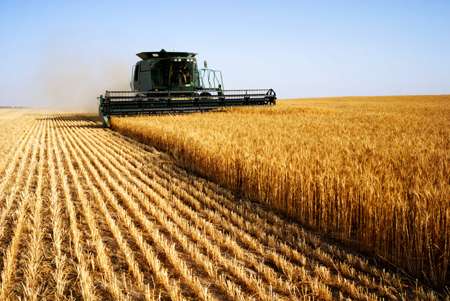Senators scuffle over farm bill amendments, ‘broken’ legislative process
Category: Miscellaneous, Policy
 (Delta Farm Press) – Late Tuesday afternoon, Senate Leader Harry Reid filed a motion for cloture on a new farm bill. A final vote will likely take place next Monday (June 10).
(Delta Farm Press) – Late Tuesday afternoon, Senate Leader Harry Reid filed a motion for cloture on a new farm bill. A final vote will likely take place next Monday (June 10).
The cloture motion followed a lengthy rhetorical scuffle over the ability to offer farm bill amendments. After several weeks of backslaps and self-congratulatory claims of bipartisanship surrounding the legislation, it was a reminder that the new farm bill still has a tricky course to slalom.
At one point, Louisiana Sen. Mary Landrieu objected to an amendment that Arizona Sen. John McCain wanted to offer. Her grievance had to do with several weeks of requests to vote on an amendment to a pending Water Resources Development bill. Landrieu wants to maintain the price of flood insurance premiums until an affordability study is done. Pennsylvania Sen. Pat Toomey was fingered as the one holding up Landrieu’s request for a vote.
“Until we get things worked out, I hope (McCain) will appreciate the predicament we’re in,” said Landrieu. “I’m happy for the senator to discuss his amendment” but announced she’d object to any vote on further farm bill amendments until the flood insurance issue was put to rest.
An irritated McCain, in a sarcastic tone, said he was “deeply appreciative” of Landrieu’s offer but would return to his amendment at another time.
After Landrieu explained her position further, Oklahoma Sen. Tom Coburn took to the lectern. Before launching into explanations for a series of amendments he wants to be considered, Coburn said the Senate has become “unwound because we don’t want to have real debates and real votes. … If Senator Landrieu is allowed her amendment, I’ll vote against it. But I think she ought to be able to have it. The fact is, the reason the Senate isn’t working is because we want to use a procedure that has never before been used. … That is to limit the senators’ rights to offer amendments.”
Coburn — who said the American people are “going to get cheated out of a full and rigorous debate” — then talked up a long list of amendments, knowing there would be no votes on them. Those included:
- An amendment to prohibit tax-evaders from “receiving government assistance including grants, contracts, loans and tax credits provided in the farm bill.”
The lone exception would be for those on food stamps. “We’d still pay for the food provision, even if they refuse to pay their taxes,” said Coburn. “But we won’t allow them to take advantage of other programs … associated with the (farm) bill.”
- An amendment to end conservation payments to millionaires.
“We have a rule at USDA that says people making $1 million a year aren’t supposed to get these payments,” said Coburn. “But guess what the USDA does? They wave the payments, wave the rule. This amendment would say ‘you can’t waive the rule.’ … The very well-connected are getting the majority of the conservation payments in this country. They’re the most capable of doing conservation on their own.”
Continuing such payments incentivizes, “people to do what they’re already going to do in their best interest.”
Left to manage the process, Michigan Sen. Debbie Stabenow, chairman of the Senate Agriculture Committee, then pointed out that the current farm bill actually contains Coburn’s conservation amendment, which was part of the farm bill passed by the Senate in 2012.
Specialty crops, broadband
- An amendment on the Specialty Crop Block Grant Program.
Funds for the program have been increased from $55 million to $70 million annually in the proposed farm bill.
“There’s nothing wrong with the program,” said Coburn, who claimed $75 million could be saved over the next five years by adopting his amendment. This would be done by capping the funds at $55 million per year and clarifying, “the food safety and access to affordable food for schoolchildren and low-income families. One third of the projects funded by the (program in 2012) went to marketing. They weren’t for kids. They weren’t for seniors.”
The money was spent, among other things, “to promote the emotional benefits of real flowers and plants in the home,” said Coburn. “That’s got to be a priority right now, doesn’t it? … How about grant funds for a float that travels to fairs and festivals to encourage people to eat more fruits and vegetables? That’s got to be a priority. We’re paying for a float. … Couldn’t we spend that dollar in a better way?”
- An amendment to require the USDA’s Rural Utility Service to ensure grants and loans made to provide broadband in rural areas go to “rural areas that don’t already have access to broadband.”
Well over an hour after first being recognized, Coburn wrapped up. “I believe farmers ought to farm and I don’t believe they ought to farm the government. … I believe food security is an important part of what Americans can do for our country and our world. I also know that our farmers are some of our hardest-working people.
“Having said all that, there are a ton of programs (in the new farm bill) that don’t directly benefit food security in this country or the American public.”




